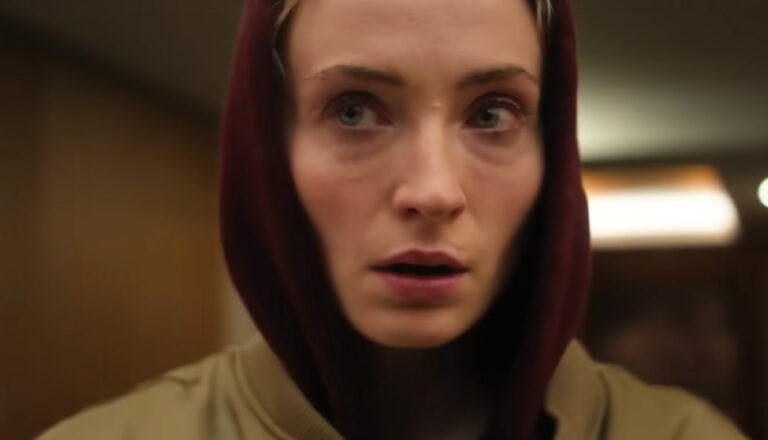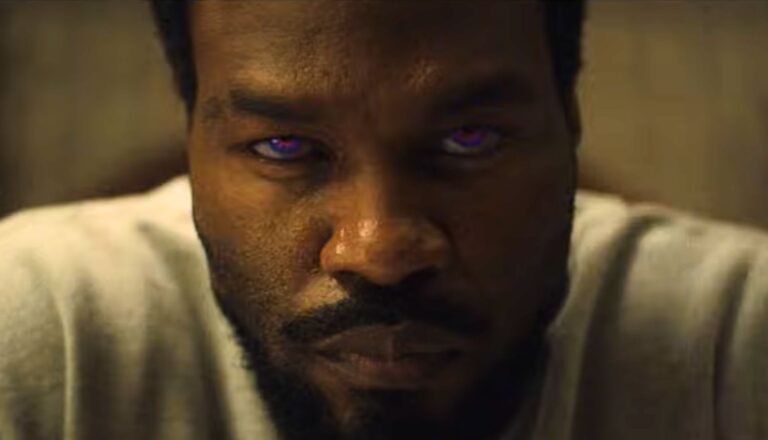
Shrinking
Apple TV+ seems to have a knack for creating deeply heartfelt, wildly problematic comedies. Shrinking is one of them.

Jessica wanted to find her Mr. Darcy, her Edward Rochester, her Alan Rickman. Instead, she got Zev—until he broke up with her for Wendy.
Reeling from that breakup, Jessica takes solace in creating private video messages for Wendy, ranting through whatever emotions she’s felt in a day. She’d never actually send the videos, mind you, but they make her feel marginally better.
Still, she’s clearly in a bit of an emotional slump. So her company decides to send her from New York to London to assist in the creation of a big Christmas advertisement. Her manager hopes that the time away working on a fresh project might reignite the passion for her job that Jessica once had.
Still, the move leaves Jessica feeling more alone than ever. So one night she goes to a pub, where she bumps into Felix, a local trying to make it big with his band. They talk, they connect, they return to Jessica’s apartment. Then Felix admits he’s seeing someone, and he leaves.
Sigh.
Perhaps she’ll comfort herself by making a video for Wendy? The candle’s a nice touch, too. Maybe she’ll hold it up as she records herself—
The candle falls to the ground. Jessica catches on fire—nothing serious, but it’s enough to cause her to have a panic attack.
The paramedics hose her with cold water as she trembles in the tub (probably making a much bigger deal out of her situation than she should).
And then Felix returns.
In that moment, despite how ridiculous she must look, Jessica wonders if she may have found her long-pined-for British sweetheart.
I don’t think it takes a detective to discern that Focus on the Family and Too Much writer/director Lena Dunham stand on opposite sides of most social issues. We won’t belabor that point, but it’s important to keep that in mind: there’s probably going to be an inverse relationship between liking Plugged In and liking Too Much.
But if there’s one thing that we agree with Dunham on, it’s that there’s no work that isn’t influenced by its creator’s personal views. Whether intentional or not, all art reflects the values of the artist creating it; so viewers should work to recognize those values as they appear in a given story. In Dunham’s case, inserting her views—specifically on abortion—into her work is a feature, not a bug.
“As an artist, I’m proud … that we get to be part of showing people all over the world a healthy woman making a super self-actualized choice to get reproductive care [from] a really true, loving abortion provider, because those people are heroes,” Dunham said in an interview with The Hollywood Reporter. “So to be able to represent that was really, really important to me.”
Too Much isn’t the first time Dunham’s used her stories to push a pro-abortion narrative (another scene from Dunham’s Girls generated controversy on the subject, too). It’s also not the only issue we’ll see in the series, which includes ample illicit drug use, prominent LGBT issues and frequent onscreen sex.
But while Too Much embraces and glorifies those themes, I don’t think the tragic secular worldview on display here is similarly intentional. The show depicts secular existence as being perpetually painful. Characters jump from cocaine to sex to angry rants to painfully broken human relationships, hoping to find something that will satisfy them. None of them do—not ultimately.
For me, viewing these shows doesn’t hurt my heart because of the explicit content itself—though there’s plenty of that, and plenty to be concerned about. No, shows like this are hard to watch because I was once of the same mind: hoping that the world’s sin-stained pleasures might satisfy the deep longing within my heart for something greater. This show exposes and unintentionally illustrates the desperate search all of us have endured—the one that ends in so many of us, myself included, desperately crying out, “What must I do to be saved?”
Too Much works very hard to convince us that sex-centric hedonism is the best we can get in this life, and that viewers should root for that outcome. But that worldview misses the mark, to say the least. Because, at the end of the day, there’s no human relationship that will ultimately satisfy us, not even if it’s a “Mr. Darcy, Edward Rochester, Alan Rickman” kind of relationship.
But there is One greater who can.
(Editor’s Note: Plugged In is rarely able to watch every episode of a given series for review. As such, there’s always a chance that you might see a problem that we didn’t. If you notice content that you feel should be included in our review, send us an email at letters@pluggedin.com, or contact us via Facebook or Instagram, and be sure to let us know the episode number, title and season so that we can check it out.)
Following a breakup and a resulting personal crisis, Jessica moves to the United Kingdom. She’s set on making a good impression at work and finding love.
We see Jessica in a bra. A woman crudely describes what it’s like to have sex with her. We hear multiple, explicit references to different sex acts. A woman describes a man’s “erotic smell.” We’re told that someone left his wife so he could have sex with another couple. The man later seeks to hide a hickey from his ex-wife. A prostitute references sex and attempts to advertise her rear end to men. Jessica imagines a scene in which a guy wears a dress and flirts with another man, and the two men kiss. There’s a comment about erectile dysfunction. A man worries that a nearby Internet provider is “beaming Internet signals” into his brain and crotch, which Jessica finds “really, like, sexual.” Later, Jessica attempts to become intimate with the man by kissing him, but he rejects her advances. We see a guy shirtless.
A man chokes a woman. We are told that someone got away with sexually assaulting another person. We learn that a woman physically abuses her husband. Jessica breaks into a house and knocks over a lamp. She also accuses a man of kidnapping girls.
A Jewish woman criticizes her family for marrying Gentiles: “The thing about a Christian man is they always end up at the corner bar,” she complains. Her relative responds: “My Christian man … ended up in Bushwick, doing therapeutic ketamine and experimenting with pansexuality.” Someone mentions the Dalai Lama. A boy exits a room by saying “see you in hell.”
Jessica gets drunk. We hear verbal references to Xanax, OxyContin and ketamine. People drink wine.
We see a dirty toilet filled with waste. Jessica urinates.
Characters use the f-word roughly 30 times, the c-word six times and the s-word about 15 times. “A–,” “b–ch,” “h—,” “d-ck,” “p-ss,” “b–tard” and “whore” are all spoken. God’s name is taken in vain nearly 20 times.

Kennedy Unthank studied journalism at the University of Missouri. He knew he wanted to write for a living when he won a contest for “best fantasy story” while in the 4th grade. What he didn’t know at the time, however, was that he was the only person to submit a story. Regardless, the seed was planted. Kennedy collects and plays board games in his free time, and he loves to talk about biblical apologetics. He’s also an avid cook. He thinks the ending of Lost “wasn’t that bad.”

Apple TV+ seems to have a knack for creating deeply heartfelt, wildly problematic comedies. Shrinking is one of them.

‘Steal,’ an intense, nail-biting thriller, will certainly keep you engaged. But that means facing some bloody, frightening situations along the way.

For a superhero show, ‘Wonder Man’ is surprisingly light on violence, but a bit heavy on swearing, sexual allusions and meta-Hollywood references.

The content issues in ‘Memory of a Killer’ aren’t forgettable, but they’re tamer than most other shows in the “double life” genre.